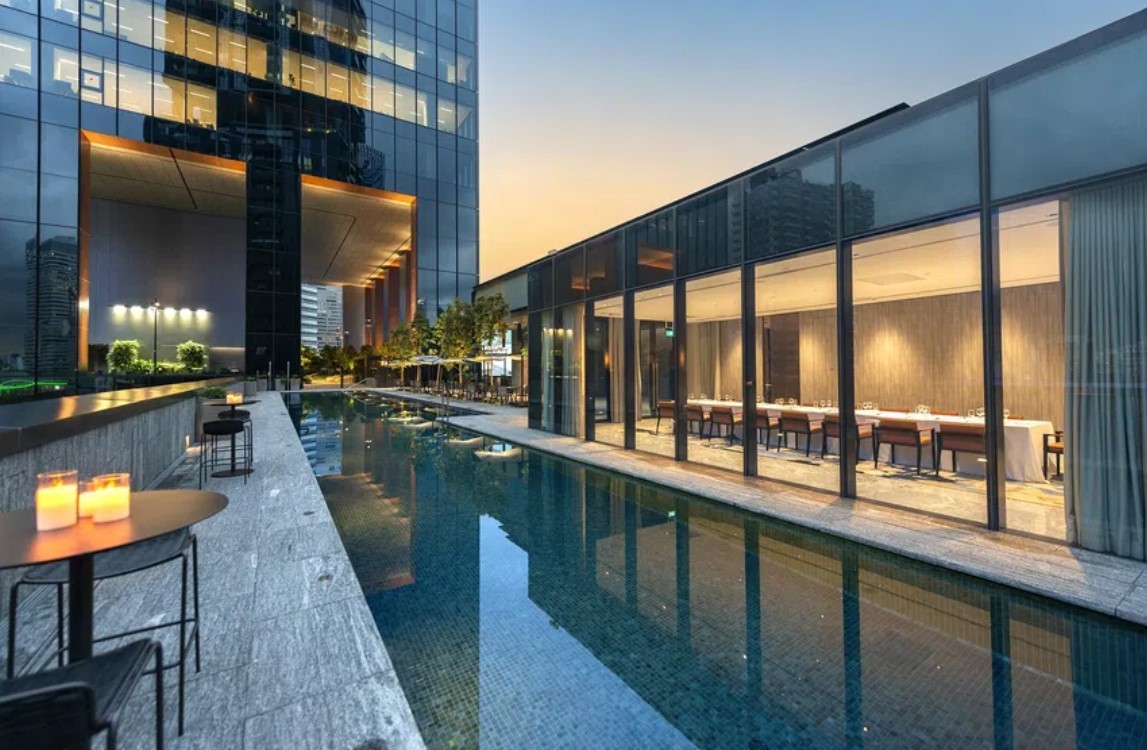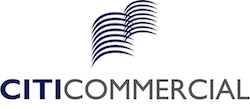GuocoLand taps X factor to help tenants pull workers to offices amid hybrid work

A GREATER differentiation will emerge among Grade A office buildings in Singapore as businesses seek to build social capital in a hybrid working environment, according to the group chief executive officer of GuocoLand : F17 0%.
“Companies that want to attract their staff back to the office more often will need to be not just in a Grade A office building but one with many amenities, lifestyle offerings and in a vibrant location,” said Cheng Hsing Yao in an interview with The Business Times.
Many of the head honchos of GuocoLand’s office tenants have shared with the property group that they wished more of their staff would spend more time working from the office instead of at home.
"Social capital engenders resilience – in both the business and in its individuals. When there’s a challenge, we can face it together." - CHENG HSING YAO, GROUP CEO OF GUOCOLAND”
“This is not because they have a traditional mindset of wanting to see their employees sit at the office and do the work. These organisations recognise that spending time in the office together fosters corporate-culture building. Mentorship exists in observing, listening. Those little conversations and interactions cannot be underestimated,” said Cheng.
“My own experience is that if you want to make complex decisions jointly where the answer is not so straightforward, this is better done face to face. When you’re in the same room physically, there’s more of a co-creation process,” he added.
To help companies build this social capital – trust and rapport among their employees to facilitate effective and honest communication – GuocoLand has been developing the kind of office product it thinks will entice its tenants’ staff to voluntarily want to spend more time in the office.
“It is important for office buildings to have recreational amenities, a range of F&B options at various price points in the vicinity and MRT connectivity,” said Cheng in the interview held at the Network Hub of Guoco Midtown in Beach Road.
This is a purpose-built business and social club that offers additional on-demand office spaces and meeting facilities to the office tenants in an adjoining 30-storey office tower. On the rooftop at the seventh level of the Network Hub are a 40-metre lap pool and a private dining room; recreational facilities extend to the same level of the office tower, where there is a jogging track, fitness corner and an events plaza.
All these amenities are for the exclusive use of office tenants in Guoco Midtown, a mixed-use project connected to the Bugis MRT interchange station.
Positive association with office
Beyond the hardware, GuocoLand organises activities to spur office workers at Guoco Tower – a mixed-use project the group developed earlier in Tanjong Pagar – and Guoco Midtown to look forward to coming to the office. There are regular “sweet treats” events where they receive gifts from the landlord.
“The whole office lobby gets very noisy as everybody comes down; the atmosphere is very happy,” said Cheng.
Festive markets and fitness classes are also held at Guoco Tower. At Guoco Midtown, there are plans for self-improvement and wellness classes at the Network Hub.
“All these create a positive association with going back to the office,” said Cheng.
For high-performing companies, the biggest cost in their business is staff remuneration, not rental, said Cheng. “Spending a bit more on good-quality office space, if that can help elevate the productivity, creativity of their staff, will yield a lot more returns. The boss will say: ‘This space is part of the investment in my talent. My people are happier and they want to work from the office more often.’”
Greater differentiation within Grade A offices
In short, within the Grade A office segment, hybrid work will accentuate the distinction between buildings that offer occupiers the attractions to draw more of their staff to the office – and those that don’t.
Guoco Midtown’s office tower was completed in January 2023, followed by the Network Hub in August 2023. The project has achieved 97 per cent take-up (including pre-committed leases) for its 709,000 square feet (sq ft) net lettable area of office space.
Some 30,000 sq ft of retail space in the project was completed in stages last year and earlier this year. The development also has a residential component: the 219-unit Midtown Bay, which is more than 60 per cent sold and is slated for completion in the second quarter of this year.
Guoco Midtown was developed by GuocoLand and its Hong Kong-listed parent, Guoco Group.
Also integrated as part of the development is a joint-venture project across the road in Tan Quee Lan Street; this comprises the Midtown Modern condo and a 20,000 sq ft retail podium called Guoco Midtown II. The 558 units at Midtown Modern are almost fully sold. GuocoLand partnered Hong Leong Holdings and Hong Realty for this project, which is slated for completion later this year.
Cheng recalled that when GuocoLand clinched the Beach Road site in 2017, there was some scepticism in the market about the high land price of S$1,706 per square foot per plot ratio and viability of a large office development in the location.
“But we bid for the Beach Road site on the back of our experience at Guoco Tower”, the office, retail, residential and hotel project the group developed on a site acquired in 2010 above the Tanjong Pagar MRT station.
Appeal of eclectic location
“When we began leasing the offices at Guoco Tower around 2015, we came across a group of tenants with more open mindsets who liked the area’s mixed character including shophouses, hawker centres and a whole range of other amenities.”
Likewise, for the Beach Road site, GuocoLand liked its eclectic location near shophouses and arts schools, combined with the youthful high-energy vibe of the Bugis area. “We felt the site and its attributes would allow us to create a very strong office mixed development.”
A number of senior executives of the office tenants at Guoco Midtown have told Cheng that moving their office to the development is part of an overall strategy to transform mindsets, heralding a new beginning.
GuocoLand plans to bring on board its placemaking programmes into the public spaces and Network Hub of Guoco Midtown.
The project is already connected to Duo, Bugis Junction and the Bugis MRT interchange station via an underground pedestrian network. It will also be connected to South Beach and Suntec City via overhead bridges. “If there’s more pedestrian movement across all the major developments, it’ll be better for the district,” said Cheng. “Over time, we will see our Guoco Midtown projects transform into the social heart of the Bugis area.”
The group has extended its placemaking ambitions to the Singapore residential scene over the past three years, at a new private housing estate near Lentor MRT station. GuocoLand is involved with four of the six sites in the locale sold by the state, comprising three joint-venture projects and a solo development that will include ground-floor retail space.
Twin engines of growth
Guoco Midtown and Guoco Tower have been critical pieces in transforming the group’s business from one of primarily for-sale residential property developments to also include a substantial investment property portfolio to provide recurring income.
The group’s pool of investment properties has expanded from around S$428 million as at end-June 2010 to S$6.24 billion as at Dec 31, 2023.
The end-December 2023 figure includes the office and retail components of Guoco Tower and Guoco Midtown, as well as 20 Collyer Quay in Singapore and a 18-storey office tower and the retail basement retained for rental income at the Guoco Changfeng City development in Shanghai.
GuocoLand’s recurring revenue from investment properties expanded from S$18 million for the 2010 financial year ended Jun 30, 2010, to S$69.6 million for FY2017 with the completion of Guoco Tower’s office and retail components.
The figure has continued to grow. In FY2023, it reached S$169.6 million, increasing 35 per cent year on year due to higher rental income from Guoco Tower and the Changfeng City office tower, and initial contribution from Guoco Midtown’s office tower. For the first half of FY2024, revenue from investment properties grew 46 per cent to S$109.4 million.
Just as the group seeks to help its office tenants develop social capital within their organisations, Cheng stresses it is equally important for GuocoLand to do the same.
“Social capital engenders resilience – in both the business and in its individuals. When there’s a challenge, we can face it together. Such an environment spawns innovation,” he said.
“We are big on ideas and envisioning the future or emerging trends that in turn inform us in the way we design, build and manage our properties. That’s how resilience is built as well. During challenging times or when shocks happen, a project with a stronger concept will fare better.”




